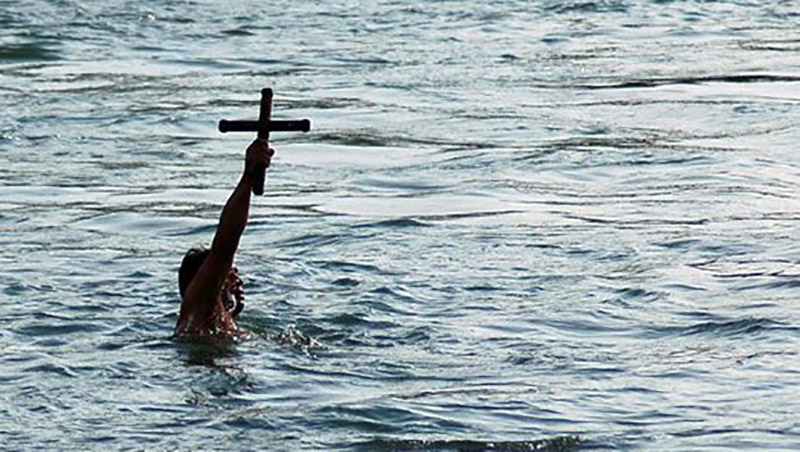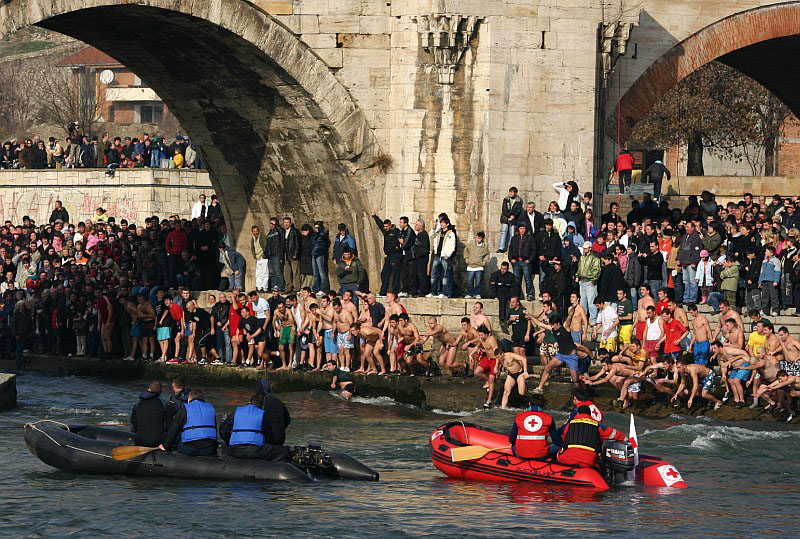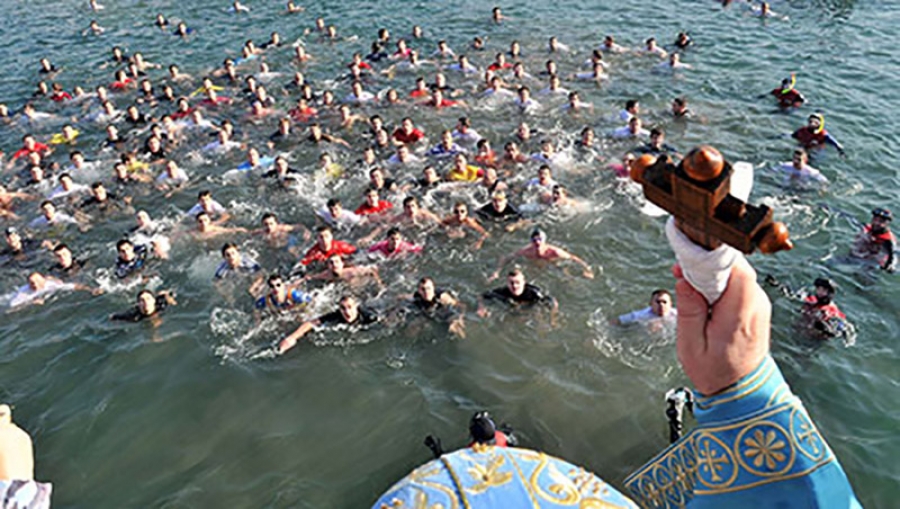Today is Bogojavljenie - Vodici
These days are also called "unclean" and "unbaptized". In these days, according to popular beliefs, demonic and "unclean" forces develop a very strong activity. That is why in the unbaptized days, people should not weave or work with wool. According to a church mythology, it is stated that in these days Jesus Christ was not yet baptized, and therefore these days are "dangerous".

There are a series of taboos that end with "Bogojavljenie": e.g. in the nighttime you should not go anywhere, the windows of the house should remain closed, passengers are not allowed to stay overnight, no one is getting baptized or married.
The day before Vodici is called "Vodokrstenie" which is churchly called "Krstovden". Then the priests go to people's homes, and with basil and sanctified water sprinkle all the rooms in the homes, and thus chase the demons ("all the bad things") from the houses. The same day is "Nejatka" and people do not eat anything in order to ritually prepare for the purification of the soul - the next day. That day the masked processions (such as the Rusali) ended their ritual games and collected ritual food, which is eaten on Vodici (beans, onions, wine, Rakia...). After that, they went to church to pray for ritual cleansing.

A special place in the philanthropic cult takes the water. It was a common practise for any household, whether a girl or a boy would go to some source before the sun rose and fill the water from it. It is especially important that no one should drink or wash from that source. On that day the water from sources, rivers etc is sanctified. Every time the priests threw basil in the water.
This custom, gradually, but obviously, passed over to all places. The priests threw a cross in the water, and then odd number of people competed and the one who managed to take out the cross, apart from the reward he will gain, it was believed that he would be followed by special happiness that year. Usually, the city's public water sanctification was held in the middle of the city. Nowadays, the threwing of the cross takes place in one of the city pools or bigger rivers, since the number of those who want to catch the cross grows up constantly. The sanctification is always made by a priest, and then the water is shared among the people.

Vodici" is celebrated for two days. The first day apart from "Bogojavljenie" and "Vodici" is also called "Vojordane" and "Muske Vodice", and the second day (January 20th) gathering of St. John the Baptist, or unnoficially - "Zenske Vodice". In the past, in the Skopje region, the custom of the Muske Vodice was famous - traditional bathing of young grooms and the firstborn son, while on "Zenske Vodice" young brides and daughters are bathed. This took place in the Vardar River, where the priest sprinkled them in a ritual manner with sanctified water.
It is believed that on Vodici time should be cold, otherwise throughout the year there will be various diseases, many people will die, because when there is ice and cold weather - diseases cannot rule. If snow falls that day, people believe that the year will be happy and fertile.

There is a popular belief that, in the sight of the holiday, the whole heaven opens and God himself appears in true magnitude. This happened precisely in the "deaf period". It was believed that at that moment, even the wind ceased to blow, and the water stoped and turned into wine, the mills stopped cutting the grain… In a few words, everything stopped and it was only silence. It was believed that only at that moment God made all the wishes come true. Therefore, the people were staying awake throughout the whole night, waiting for the Lord's appearance in order to demand fulfilling of their desires. However, everybody could only ask for a unique desire. It is thought that in this way God only respects humble people.
OTV Prilep
Journalist: Martina Biljarovska

















